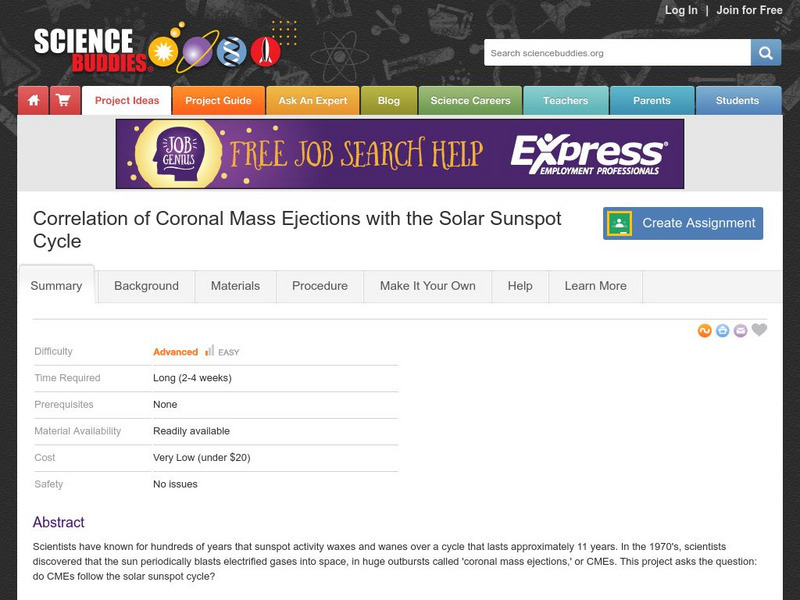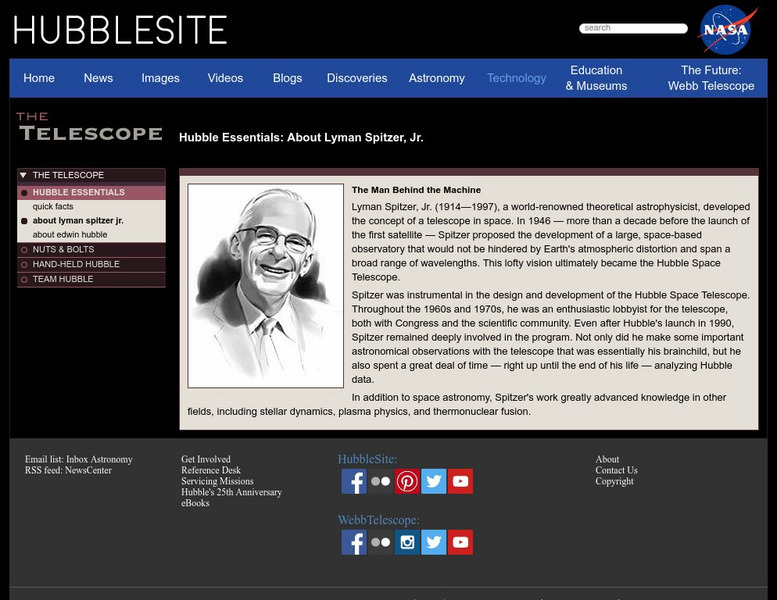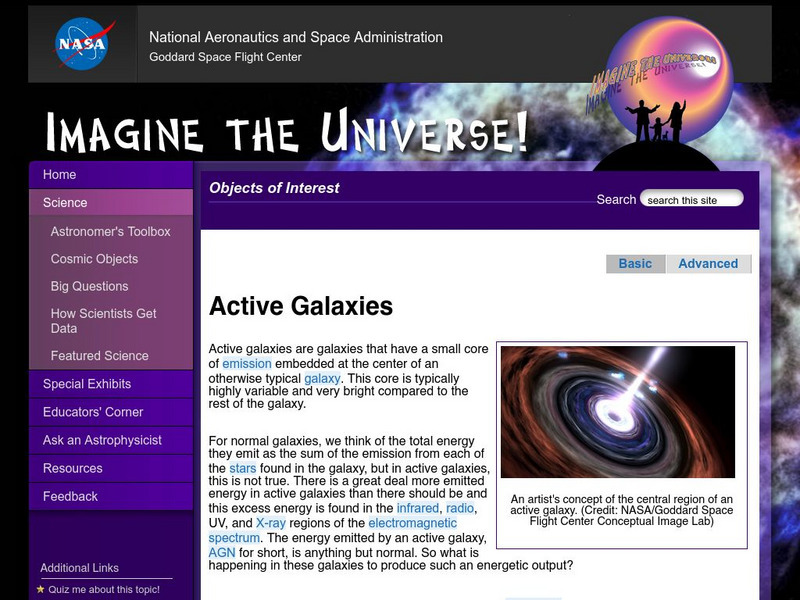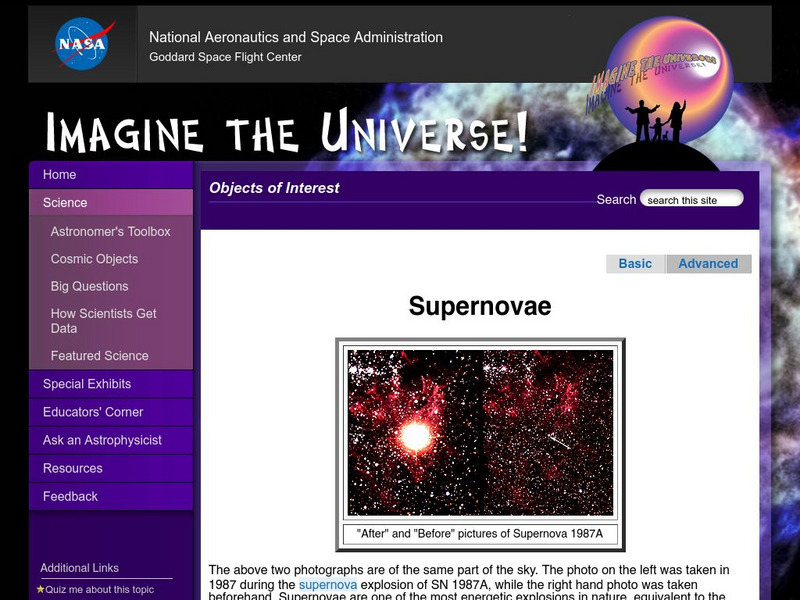Other
Elementary Science Program: Astronomy, Gr. 5 8
"Astronomy is the science that studies the Earth, the Moon and other objects in space. It has helped us discover our place in the physical universe. It is still making discoveries." This landing page gives options for students and...
Ducksters
Ducksters: Space Science: Astronomy for Kids
Kids learn about astronomy, the study of outer space including the stars, planets, comets, black holes, and the Solar System. History and astronomers in this astronomy for teachers and kids section.
Science Buddies
Science Buddies: Correlation of Coronal Mass Ejections With Solar Sunspot Cycle
Scientists have known for hundreds of years that sunspot activity waxes and wanes over a cycle that lasts approximately 11 years. In the 1970's, scientists discovered that the sun periodically blasts electrified gases into space, in huge...
Other
The Astronomy Cafe: A Guide Book to Astronomy
Investigate the field of astronomy in this book by Sten Odenwald where he talks about his own and others' experiences, as well as his experiences doing research.
Space Telescope Science Institute
Overview of the Hubble Space Telescope
This site gives an overview of the Hubble Space Telescope program. It also gives details about the previous and current science instruments used in the program, and information about the mission operations and observations.
Space Telescope Science Institute
Hubble Site: Lyman Spitzer Jr.
At the HubbleSite you can learn about Lyman Spitzer's (1914?1997 CE) inventions and accomplishments in the science field.
NASA
Nasa: History of Venus Transit
NASA site recounts the history of the Venus Transits that have occurred over the past centuries and the various descriptions astronomers have written about them.
NASA
Nasa: Imagine the Universe: Active Galaxies and Quasars
Describes quasars as being classified within the category of an active galaxy. A description of the emergence of high-energy. Definitions of key words are provided.gamma-ray quasars as an important component of the gamma-ray sky.
NASA
Nasa: Imagine the Universe: Supernovae (Advanced)
Supernovae are divided into two basic physical types, including a description of supernova types and how they are classified based on the existence of hydrogen spectral lines. Definitions of key terms are provided.






